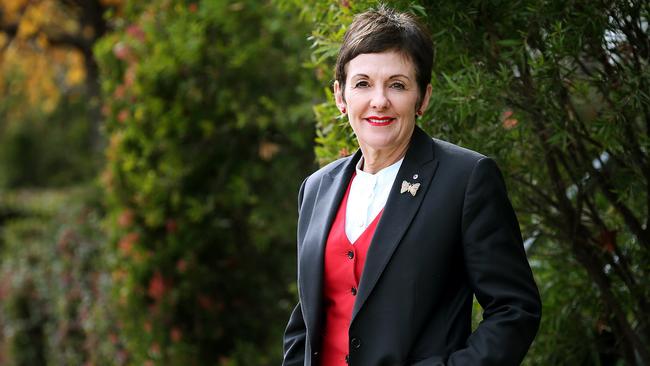‘Big business needs $65bn to meet 30-day payment: Greensill
Big businesses would have to find $65bn of working capital if 30-day payment was legislated, says global financier Greensill.

Big businesses would have to find $65bn of working capital in a hurry if 30-day payment times were legislated across the entire economy, says global financier Greensill.
But Small Business Ombudsman Kate Carnell has slammed the comment as “stupid”, saying if companies did not have the cash to pay their suppliers on time, “there would be a lot of businesses trading insolvent”.
In a meeting with Ms Carnell’s office, Greensill said forcing companies to pay their suppliers within 30 days was not realistic, given the working capital required to bring forward payments.
But it said smaller businesses were a “different ball game” and reiterated its commitment to ensuring its customers pay SMEs within 30 days.
The revelations, from a freedom of information request lodged by Labor, come as a Senate committee is probing the government’s payment reporting times framework bill — or laws aimed at naming and shaming businesses into paying their suppliers on time — ahead of a vote.
Greensill, whose CEO is billionaire farmer turned financier Lex Greensill, met with Ms Carnell’s office on February 27 this year, a little over a month after The Australian revealed Rio Tinto and Telstra had partnered with US fintech Taulia, which used invoice data from suppliers, combined with external “big data” sources, to work out exactly how much suppliers could be squeezed.
Both Rio and Tesltra quickly dumped their supplier payday lending schemes, which involved smaller suppliers discounting their invoices in exchange for prompt payment. But other companies, such as construction giant CIMIC, which is reviewing its supply chain financing arrangements, and US energy major Chevron are still using such schemes.
Meanwhile, other companies — including Flight Centre, Sussan Group, Just Group and Spotlight — have delayed paying their suppliers, blaming the coronavirus pandemic.
The surge in tardy payers prompted Ms Carnell in April to formally recommend the Morrison government legislate 30-day payment times for smaller suppliers.
According to the minutes of the meeting between Greensill and Ms Carnell’s office, Greensill said it had no problems with mandating 30-day payment times to smaller suppliers, but said it would be impossible to introduce across the broader economy.
“Analysis suggests that moving to a 30-day payment term standard for DSO (days sales outstanding) and DPO (days payable outstanding) would require an additional $65bn working capital to cover that, which isn’t realistic. SMEs are a different ball game, but the rest of the market needs to work it out,” Greensill representatives said, according to the meeting’s minutes.
DPO is the average number of days it takes to pay an outstanding invoice — increasing that ratio, improves the working capital available to a company — while DSO is the opposite, measuring the days it takes for a company to be paid.
Ms Carnell dismissed Greensill’s comment that businesses would have to find an additional $65bn to pay their suppliers on time, saying it was money that was owed for goods and services that had already been supplied.
“This is money that is already owed. If the scenario — that is, they would have to find all this extra capital because they can’t actually manage to cover monies owing — then we have got an awful lot of businesses that are trading insolvent,” Ms Carnell told The Australian.
“It might be a glib comment but … If they have to go out and find that amount of capital to meet their liabilities when they fall due, well help me. What does that mean?
“It’s just a stupid statement.”
Ms Carnell cited a Harvard Business School study, which found that after the Obama administration moved to 15-day supplier payment terms, it created 75,000 jobs and $US6bn ($8.74bn) to paypackets.
“Why does that happen? If you get money moving in the economy it actually delivers jobs and growth,” Ms Carnell said.
“To suggest that this is a cost to the economy… it isn’t. It’s the opposite.”






